|
This year the colors of fall have been spectacular. The Pacific Northwest is blessed with year-round greens. But this year the reds have been outstanding. | |
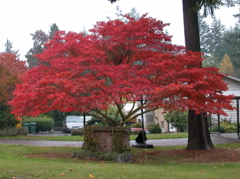
|
A fantastic maple near our house. |
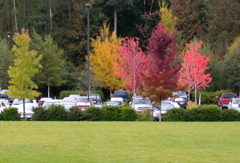
|
There are a lot of beautiful trees on the campus where I work. |
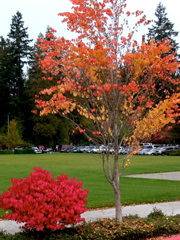
|
They have a whole range of colors. |
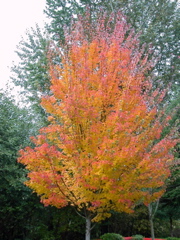
|
With subtle shading. |
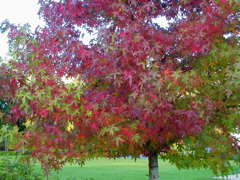
|
Even the leaves on one tree describe a spectrum. |
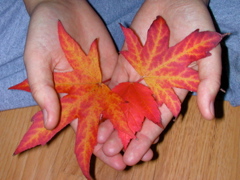
|
From the color variety across a tree, to the range illustrated on individual leaves. |
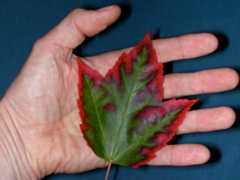
|
There seems to be no universal pattern of color change. |
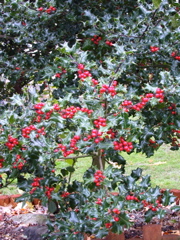
|
Holly, of course is very traditional. |
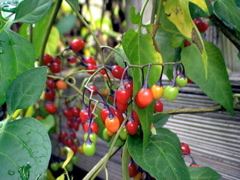
|
But other berries are just as interesting. |
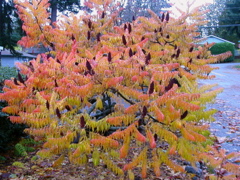
|
Is this a sumac? |
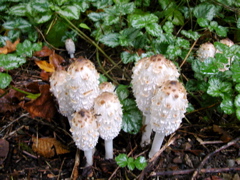
|
This variety of mushroom is called a Shaggy Mane and is edible. (I like it.) |
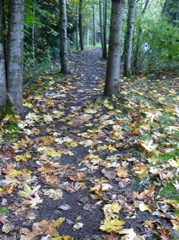
|
Most of the native colors are brown or somewhat drab, but even these can be interesting. |
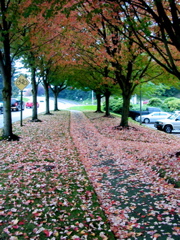
|
The fallen leaves make a snow of reds and whites. I have seen it where the grass is not even visible. |
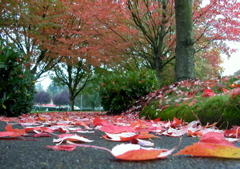
|
Our rains keeps the leaves wet. Therefore, they don't scuff up like drier parts of the country, but the colors stay bright longer. |
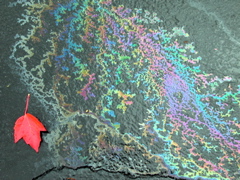
|
This oil sheen was in the parking lot at work. It had an interesting pattern and contrasted with the leaf. |
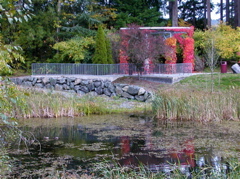
|
Ivy is around the pavilion columns. A couple of ducks took off from the pond after I took this shot. |
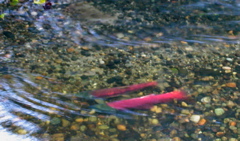
|
The Chinook salmon are running now in the streams. They also turn red during this last phase of their life. The lower fish is big: about 2 feet long (60 cm)! |
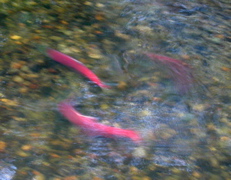
|
This was a quiet place in a stream that runs though the business park near work. They rest a while and then fight their way farther up-stream. |